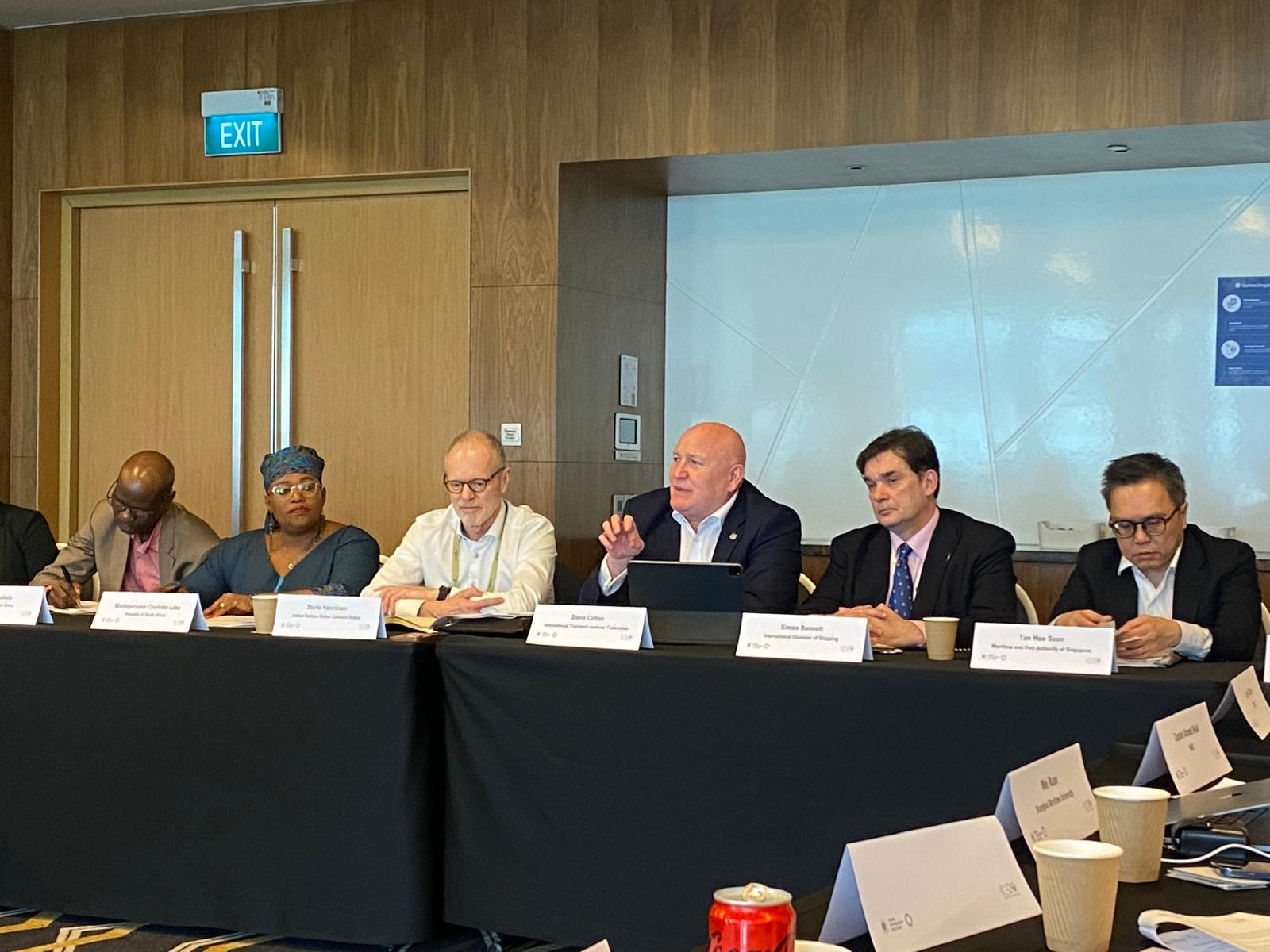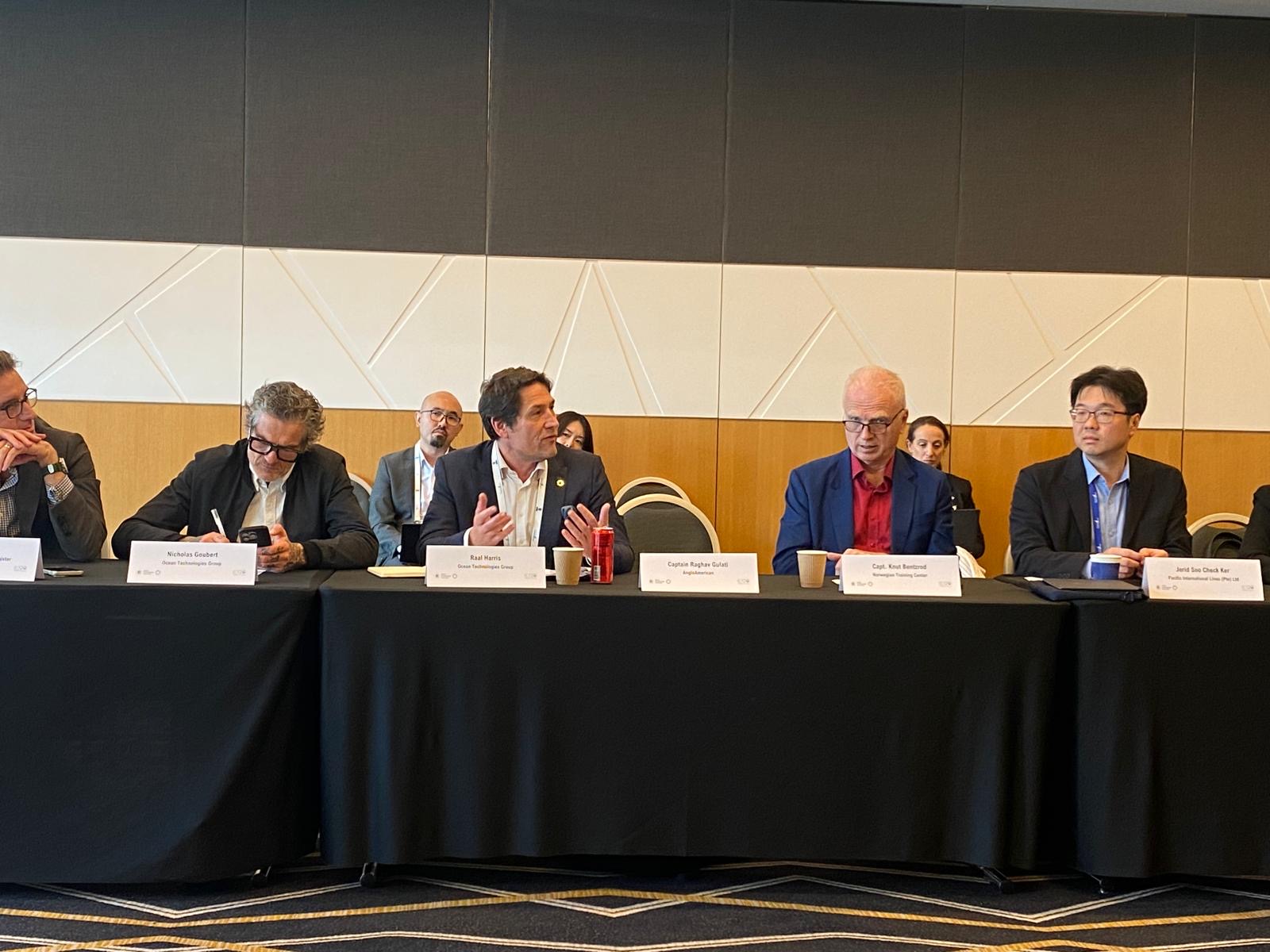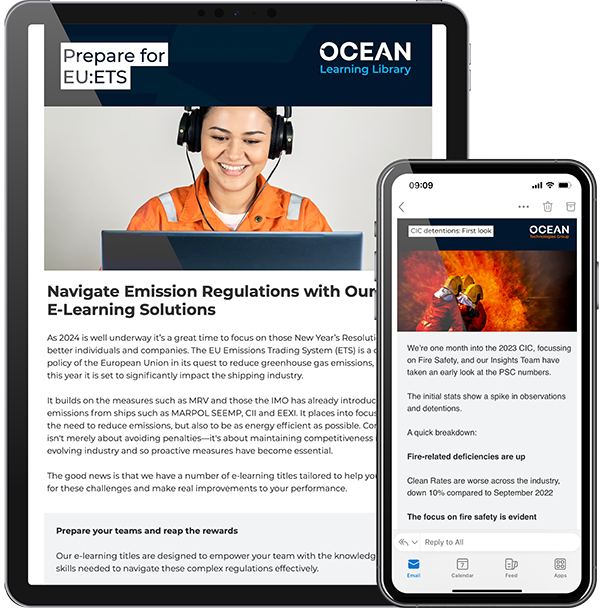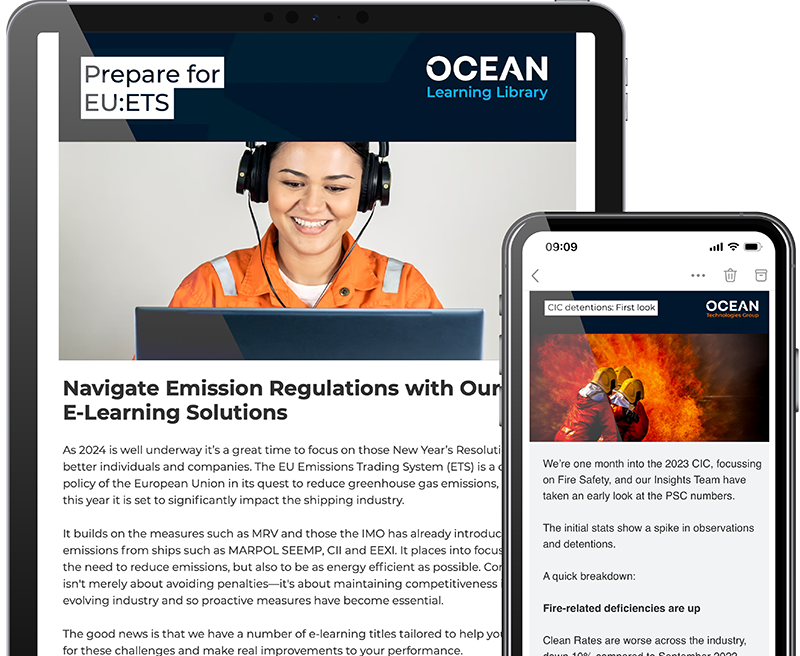Insights from the “G20 Ocean Dialogue – A Maritime Just Transition”
As supporters and contributors to the work of the Maritime Just Transition Task force shaping the training standards for new fuels, OneOcean & Ocean Technologies Group participated alongside other industry leaders in a high-level G20 Forum in Singapore recently, hosted by the UN Global Compact in cooperation with Maritime and Port Authority of Singapore.
The “G20 Ocean Dialogue—A Maritime Just Transition” included opening remarks from Mr. Sturla Henriksen, Special Advisor Ocean to the UN Global Compact, Mrs Madiepetsane Charlotte Lobe the High Commissioner of the Republic of South Africa, which will host the G20 Summit in Johannesburg in November 2025, and Stephen Cotton, General Secretary of the International Transport Workers’ Federation (ITF). They were joined by numerous representatives from the Group of Twenty (G20), comprising 19 countries, the European Union, and the African Union as well as key maritime stakeholders from across the industry.
Ideas from this Singapore forum are being aggregated into a “G20 Action Plan on Ocean” for the November meeting.
Nicholas Goubert, Co-Chief Executive Officer, and Raal Harris, Chief Creative Officer, represented OneOcean & Ocean Technologies Group (OTG), and contributed valuable insight during the forum with a particular focus around upskilling/reskilling seafarers to ensure no one is left behind.



Raal shared some key observations with the group during the “G20 Ocean Dialogue – A Maritime Just Transition” discussion:
-
Changes brought by decarbonisation will be wide ranging, starting with the way we educate seafarers. For decades, the industry has practised a model where the seafarer of yesterday has trained the seafarer of tomorrow, a process that tapped into the skills and experience of longtime seafarers. Given that there are very few seafarers with any experience working with alternative fuels such as ammonia, hydrogen, and methanol, new models will be needed.
-
We need to scale education to meet need so that seafarers are receiving the right amount of training at the right time. This can be achieved through innovative solutions and a blended approach with e-learning, micro-learning, and more. Overall, the pace of change must match the way seafarers learn, with a mindset shift from front-loaded learning at the start of a career to one where lifelong learning is the norm and a seafarer can benefit from increased access to learning at the point of need and in the flow of work.
-
Decarbonisation is also sparking a change in standards to better reflect the realities of how work is performed. For example, discussions are needed to reach agreement around requirements for how much sea time is needed working on specific vessels and specific operations to achieve certifications and how we can support the process to make it manageable for operators.
-
A demographic shift is prompting the need to attract a new, diverse generation of seafarers. If we want to attract a new generation and more women into the profession then we must create a working environment that appeals to them as well as fulfilling career paths that demonstrate we are prepared to invest in them if they invest in us.
-
We expect more interplay between onboard and shore-based roles. The industry is also changing in terms of greater connectivity between ship and shore teams, with roles moving ashore as the effect of digitalisation in everything from remote monitoring to workforce management takes hold.
Raal says:
“This transition is a pivotal moment. It represents an opportunity for the industry to modernise so that we attract the talent we need, and maritime professionals are recognised as key workers. They are not only key to ensuring the viability of sustainable global trade, they will also provide the means to transport green energy across the world. Shipping will have a very big part to play in a greener future and telling that story is a great way to encourage people to come into the maritime industry.”

Subscribe to our Newsletter
Stay connected with our guides, insights, news and more.

